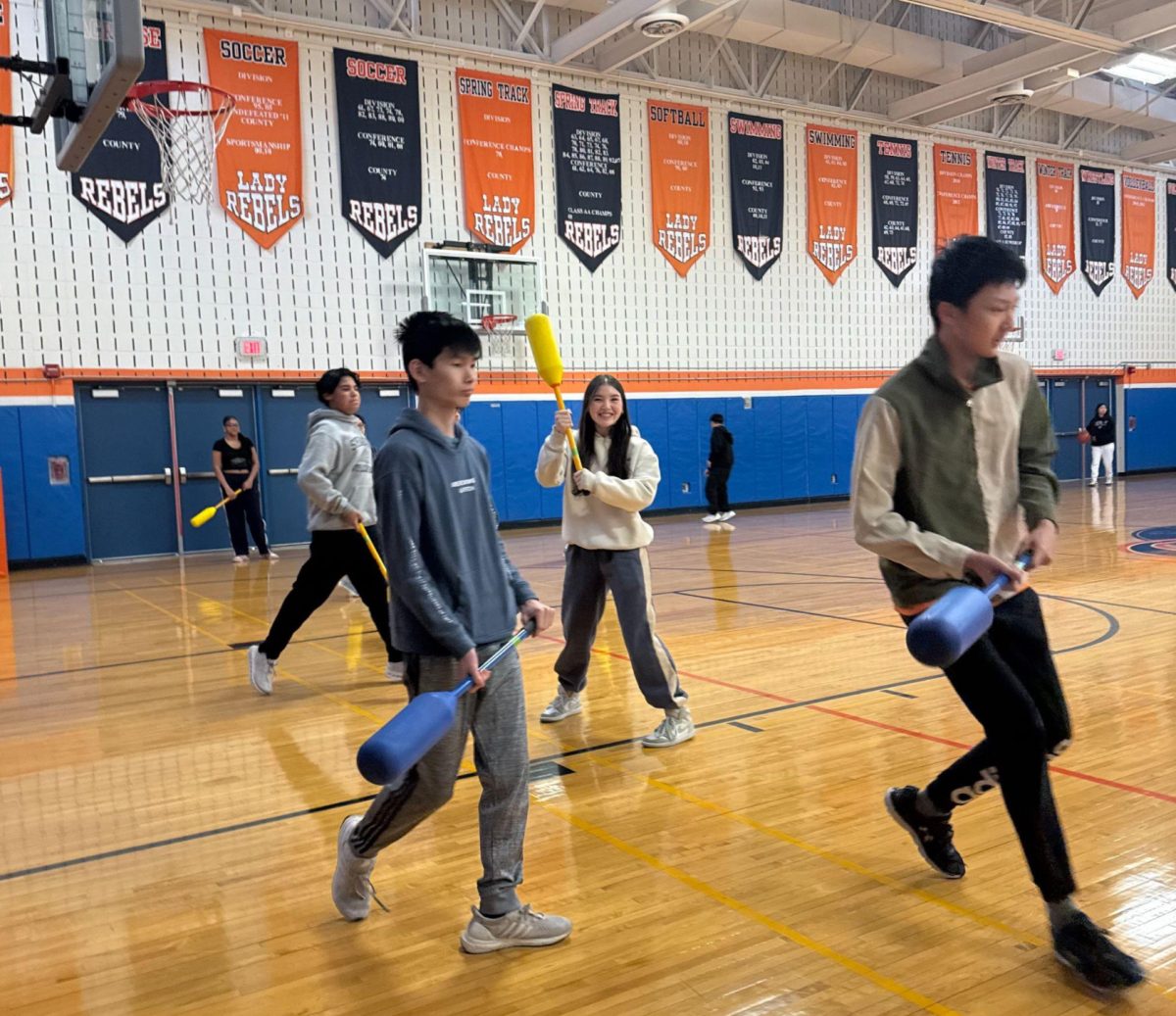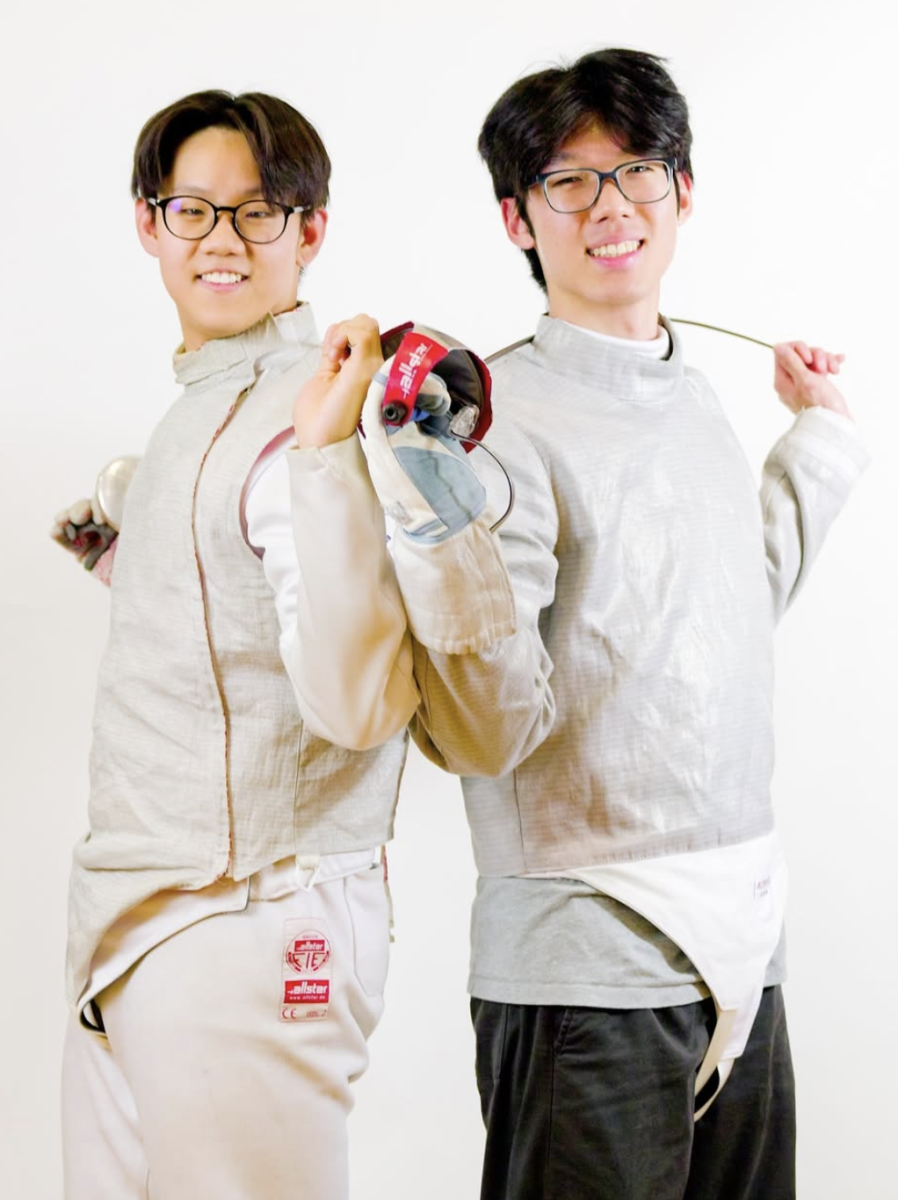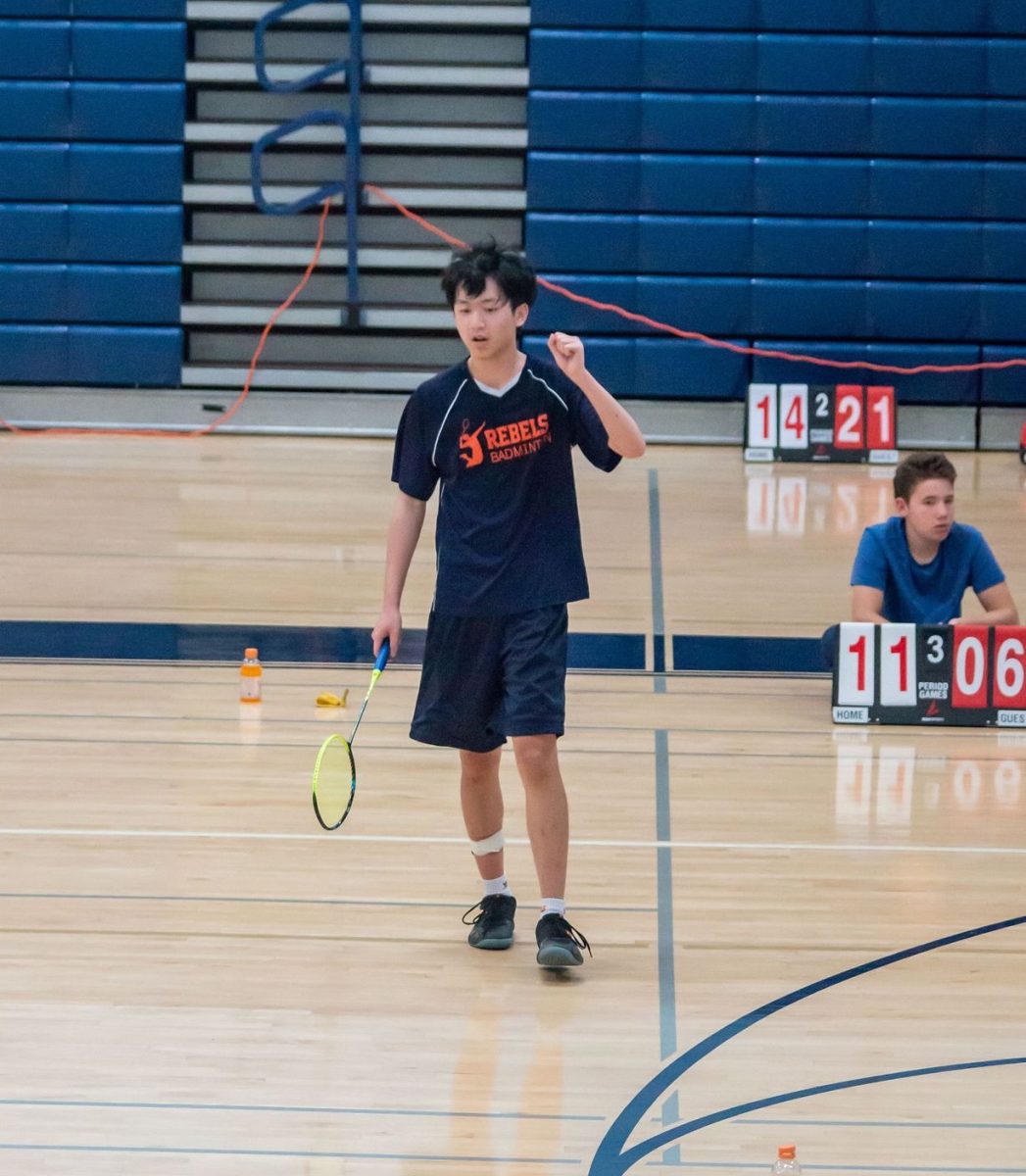
by Jacqueline Liao
On Friday, Nov. 13, the Rebel’s girls swimming and diving team hosted the inaugural Swim for a Cure event to raise money for the Juvenile Diabetes Research Foundation (JDRF). More than 20 girls from the team participated in the event, raising a total of $1,137 for the foundation. Money was raised through donations and profits from tickets.
“[The event] was really fun,” said senior Emily Cheung, who served as captain of the team during the season. “We had a noodle relay, where we [had to swim] on the floating noodles. We also did a kickboard relay, where we had to stack kickboards on kickboards and kick [the length of the pool] in a race. Usually in practice we are all very tired, and we are told to swim however many sets in a certain amount of time. But at this event, it was just more fun, and it really helped with team building.”

Juvenile Diabetes, also known as Type 1 Diabetes, is an autoimmune disease that occurs when the pancreas produces little to no insulin, a hormone that helps remove glucose from the bloodstream for use by the body’s cells as energy. As a result of the disease, too much glucose accumulates in the bloodstream, and serious problems can arise in the heart, eyes, kidney, and nerves. Currently, there is no cure, but patients with Type 1 manage their symptoms with insulin, exercise, and diet.
Senior Rachel Faber was inspired to organize the event because she was recently diagnosed with Type 1 Diabetes and has always loved doing charity work. “When I saw the other teams doing breast cancer sports events, I thought, ‘Why doesn’t the swim team do anything like this?’” Faber said. “I met representatives from JDRF who inspired me to participate in JDRF events and raise awareness. I also liked that 90% of JDRF donations go to real research and improvement. Research for diabetes is important because doctors don’t know why people get Type 1 Diabetes. They are also always working to make improvements in technology to help diabetics manage their diabetes easily.”

“A lot of people suffer from [diabetes]. [Those people] have to take [insulin] shots daily. It’s honestly a disadvantage to them,” Cheung added. “Often times, [Faber] has to get out of the pool [during practice], and she can’t do the sets like the rest of us. She has to constantly check her blood levels, and she often feels faint during practice. It’s important to raise awareness of it so that treatments can be made.”
Faber said the event was a memorable one because “everyone [was] cheering everyone on” and it was “silly and fun.” Although she is graduating, she hopes that the swim team will continue to host the event in coming years because “it adds a different factor to sports and the team was really able to bond and have fun during the event.”







